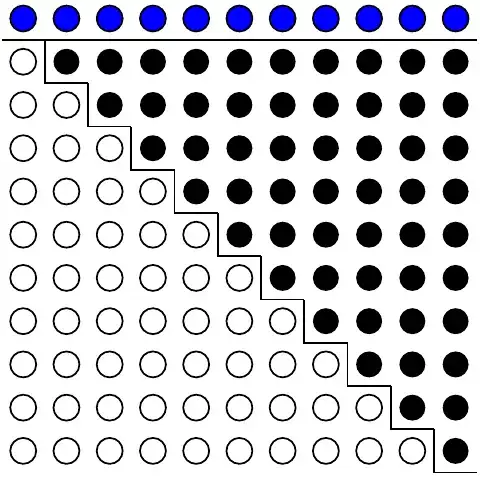Extending from particular examples I've found that $$n^2=\sum_{i=1}^{i=n-1} 2\, i+n$$ this is that for any square of side $n$ the area can be calculated in a simple way.
Example
For a square of side $7$, the result is: $2×1+2×2+2×3+\cdots + 7=49$
Question
Is there any way to prove this generally true, is there more than one way?Can you show at least one?
